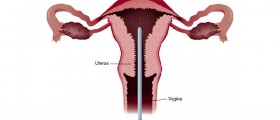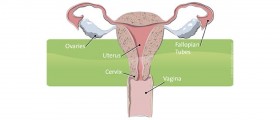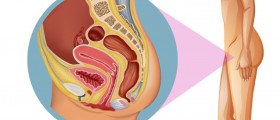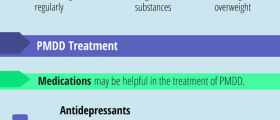I had a radio-frequency endometrial ablation done on August 2, 2022, and about a week after I was doubled over in severe labor like pain for several hours with excruciating pain (pelvic cramping) to urinate, couldn't breath! I waited to see my doctor the next day that performed the procedure and she put me on an antibiotic, thinking it was a UTI. Results came back as negative for a UTI. So still not sure what caused this pain. Dr said it could be the uterine fibroid that I still have- said it was degenerating due to lack of blood supply from the ablation and this could cause extreme pain possibly. It has shrunk from 7.3 cm to 5.3 within 1 month. I was severely bloated with the pain onset and still am, over a month later! Stomach is distended and firm like. I had a CT scan recently that didn't show anything abnormal of my stomach and pelvis. So why am I still this bloated?! I can't even fit in my clothes! I'm so overwhelmed with worry over this! I also started my menstrual cycle again, needless to say, it's extremely heavy and over 7 days long with pain, just as it was before the ablation. I guess that means it failed. I would just like some answers to why my stomach is still this swollen/bloated over a month after having the ablation?! No one has any answers, not even my doctor! Would a hysterectomy take care of all of this?
Loading...
Endometrial ablation is a procedure used to treat heavy menstrual bleeding by removing or destroying the lining of the uterus. While this procedure is generally safe, there are potential complications that can arise, and it's important to seek medical attention if you experience any concerning symptoms.
Severe stomach swelling, particularly if it occurs over a month after the procedure, could be a sign of a complication such as infection or fluid accumulation. Other possible causes could include constipation, which can be a side effect of the pain medications that are often prescribed after the procedure, or even a reaction to the anesthesia used during the procedure.
It's important to contact your healthcare provider right away to describe your symptoms and seek further evaluation. They may want to perform a physical exam, imaging studies, or blood tests to help determine the underlying cause of your symptoms and provide appropriate treatment.
Have you found out the cause?
Loading...
















